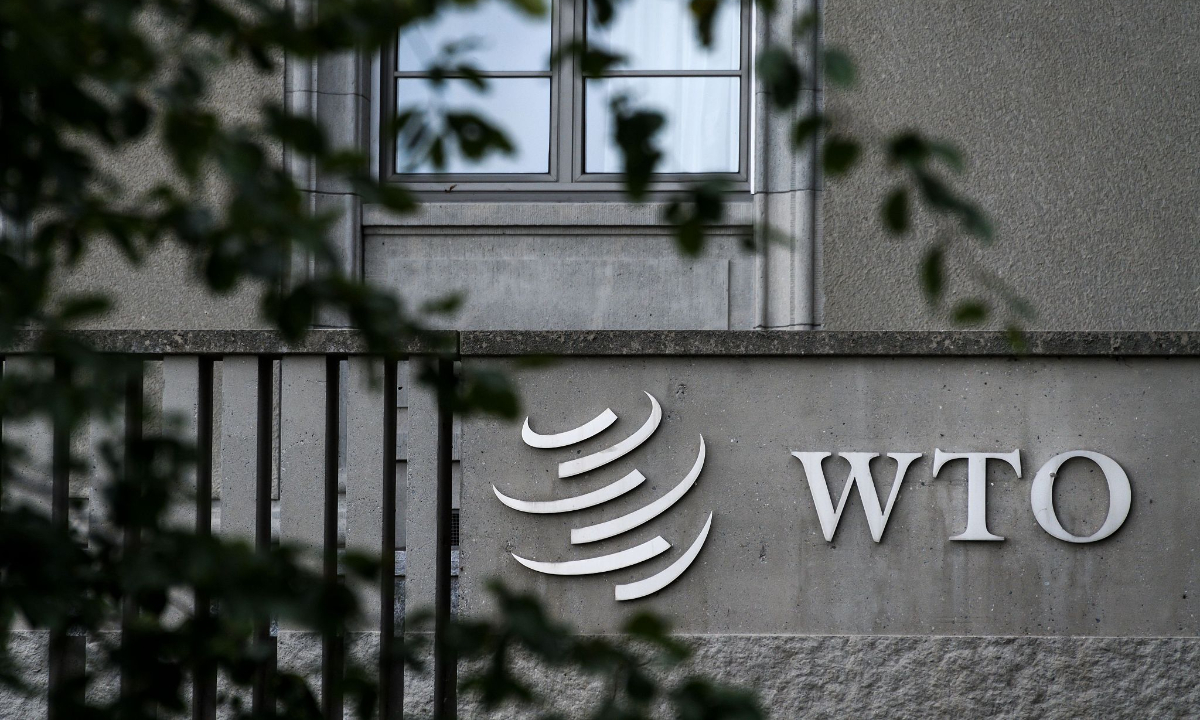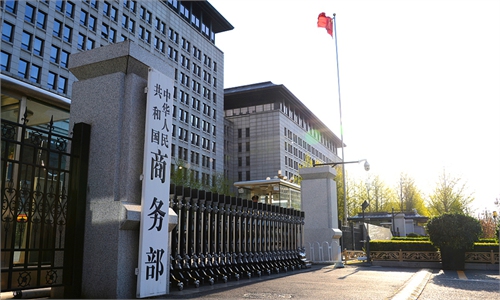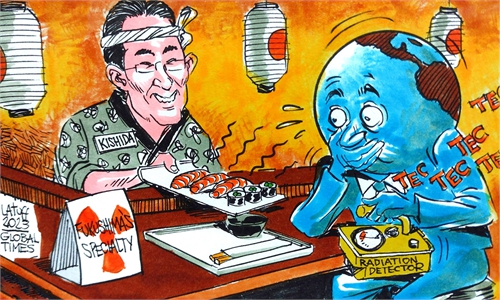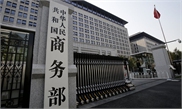China stresses need for WTO reform, high-level opening-up
Nation’s 'dual circulation' policy doesn’t mean isolation: experts

A sign of the WTO on its headquarters in Geneva Photo: VCG
China's top leadership has stressed efforts to actively participate in the reform of the World Trade Organization (WTO) and improve the ability to handle high-level opening-up.
Xi Jinping, general secretary of the Communist Party of China (CPC) Central Committee, made the remarks while presiding over a group study session of the Political Bureau of the CPC Central Committee on Wednesday, Xinhua News Agency reported.
He urged efforts to fully participate in WTO reform and adjustments of international economic and trade rules, while promoting deep-level reform and high-quality development with high-level opening-up.
Historical changes have taken place in the relationship between China and the WTO, he said, noting that the country has gradually grown from a passive recipient of and an active adapter to international economic and trade rules, to an important participant in this field.
The facts have proven that China's decision to join the WTO was a perfectly right one, as the accession has not only accelerated China's own development but also benefited the rest of the world, Xi said.
He stressed the need to stick to the overall trend of economic globalization, champion free trade and true multilateralism, oppose unilateralism and protectionism, oppose politicizing, weaponizing and overstretching the concept of national security on economic and trade issues, and build an open world economy.
Experts have highlighted China's proactive engagement in WTO reform, its commitment to opening-up and contribution to multilateralism and free trade.
Dong Shaopeng, a senior research fellow at the Chongyang Institute for Financial Studies, told the Global Times on Wednesday that China's entry into the WTO has led to a boost in global trade, thanks to China's advantages in population, resources, and sophisticated industry system.
Dong also highlighted that China's role as a world factory has helped balance global merchandise prices and ease global inflation.
Li Yong, a senior research fellow at the China Association of International Trade, told the Global Times on Wednesday that China's commitment to continuing high-quality opening-up will contribute to China's "standard-bearer" role for free trade and investment and globalization, which is facing headwinds under the complex global geopolitical situation.
As the world's largest trading nation, the second largest economy and the world's largest consumer market, China's further opening-up stands to benefit partner countries, Li said.
Since its accession to the WTO more than 20 years ago, China has become the world's largest trader for goods and a major trading partner for over 140 countries and regions, contributing an average of nearly 30 percent to the world's annual economic growth.
Experts also argued that China's development, centered on "domestic circulation," does not equate to a policy of isolationism or abandoning the international market, as hyped by some Western media.
"Dual circulation," the new development paradigm that China adopted in 2020, takes the domestic market as the mainstay while allowing domestic and foreign markets to reinforce each other.
Dong said that large economies like China, the US, and India should focus on domestic economic circulation, which is the basis for generating spillover effects to the outside world and driving global economic growth.
"China's 'dual circulation' strategy aligns with the regular trend of large economies and stigmatization against China from some Western media exposes their misunderstanding and ignorance," Dong said.
The "dual circulation" strategy will make China more proactive in its openness, effectively enhancing its resilience against risks, and is also a response to the Western "decoupling" from China, expert said.
In fact, China has been continuously exploring higher levels of openness, and the construction of pilot free trade zones (FTZs) serve as a proactive exploration.
Xi has recently delivered instructions on advancing the development of FTZs, Xinhua reported.
He called for being a pioneer to forge ahead and overcome difficulties, explore a wider field and at a deeper level, and strive to build higher-level pilot FTZs.
He said that it is essential to align domestic rules with international economic and trade rules by high standards, further promote institutional opening-up, strengthen overall planning and systematic integration of reform, and promote innovative development of the entire industrial chain.
Since the establishment of the first pilot FTZ in Shanghai in 2013, China has so far established 21 FTZs and the Hainan Free Trade Port.
In the past 10 years, 278 institutional innovations have been formulated in FTZs and then replicated nationwide, covering investment facilitation, trade liberalization, financial opening-up, among other fields, Xinhua reported.



